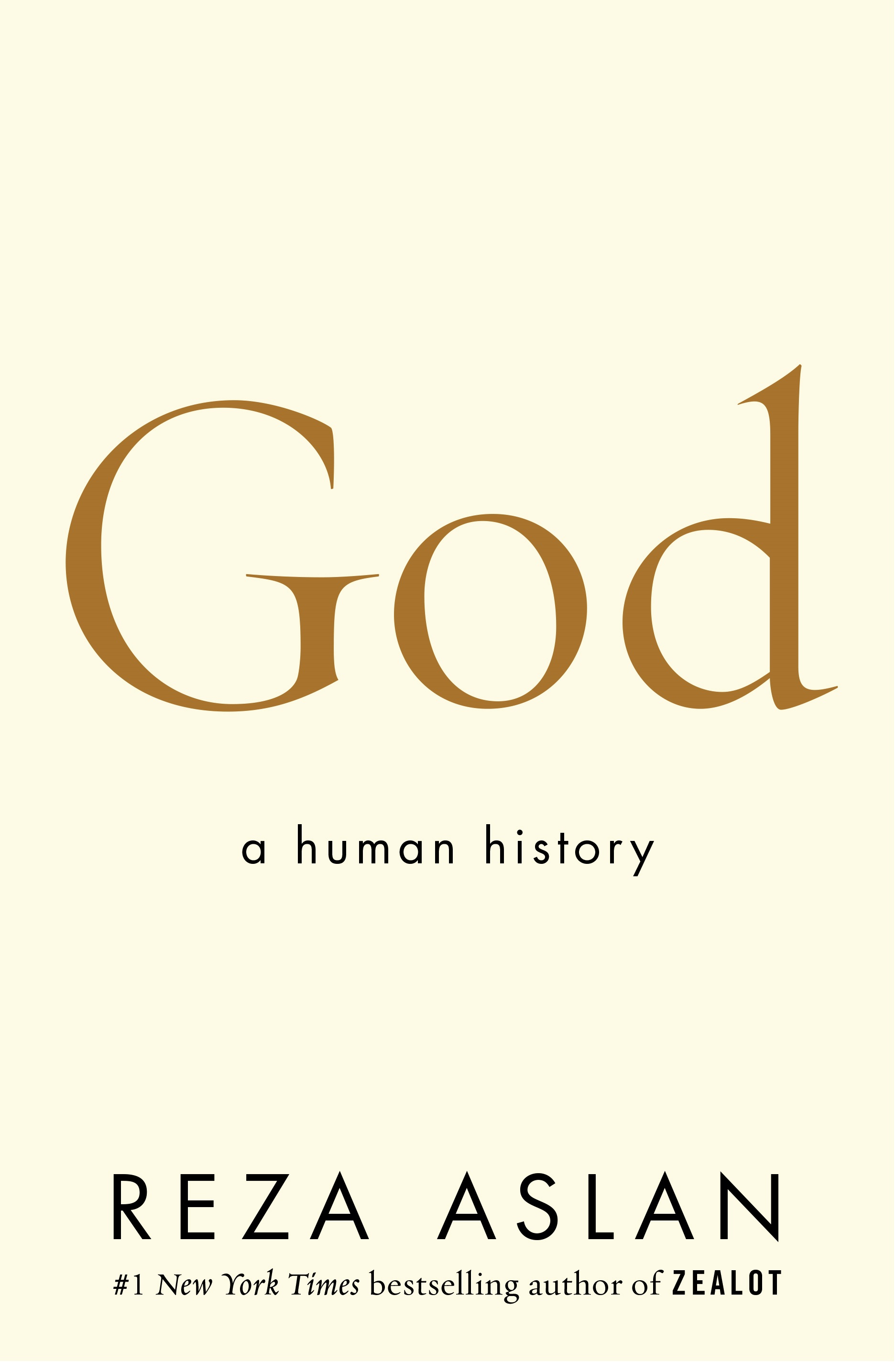It is not just the season of holidays and holy days in the monotheistic religions; the art galleries and museums are busy reminding us of worlds beyond, with Imagining the Divine at the Ashmolean in Oxford, and Living with Gods at the British Museum (replete as is now de rigueur with illuminating radio programmes from Neil Macgregor, whose book will follow in March). God and gods are more than ever with us, even in the West’s secular age.
As if to emphasise that, God: A Human History is an individual and idiosyncratic compendium of authorial and anecdotal observations on gods and God from the controversial and popular Iranian American author, broadcaster and academic Reza Aslan, who has already written a bestselling book on Jesus (provocatively titled Zealot) and also, extensively, on Islam and extremism. As the title suggests, the basic premise is that our varying views of God visualise him as a human writ large. We are not made in the image of God: God is made in our image. Hence the play on words in the title: God is indeed a human history.
 Aslan provides a crisp, very readable essay which in under 200 pages canters through – it quite gallops along, in fact – tens of thousands of years; it starts with the primates, the Neanderthals and others, whose brains were as big as ours but who somehow did not make it as homo sapiens took over, and goes on to examine how and why human beings believe in something beyond the observable world. It is highly personal, starting with Aslan’s own childlike apprehension of God as a kind of awesome super-paternal figure, beard and all. He describes inter alia his own religious adventures involving both Islam and Christianity, and provides a chronological race through human history, from hunter-gatherers to cities and civilisations, empires rising and falling, and reminds us vividly that the monotheism many of us take for granted as our prevailing view is only several thousand years old.
Aslan provides a crisp, very readable essay which in under 200 pages canters through – it quite gallops along, in fact – tens of thousands of years; it starts with the primates, the Neanderthals and others, whose brains were as big as ours but who somehow did not make it as homo sapiens took over, and goes on to examine how and why human beings believe in something beyond the observable world. It is highly personal, starting with Aslan’s own childlike apprehension of God as a kind of awesome super-paternal figure, beard and all. He describes inter alia his own religious adventures involving both Islam and Christianity, and provides a chronological race through human history, from hunter-gatherers to cities and civilisations, empires rising and falling, and reminds us vividly that the monotheism many of us take for granted as our prevailing view is only several thousand years old.
He goes through theories from the past several centuries as to why humans have a religious impulse – that is, why we believe that we possess not only bodies but also souls, invent rituals of all kinds, and think there is a world beyond the physical one. There still seems to be no universally accepted plausible explanation, although some manifestation of a spectrum of belief goes back, we are told, even past homo sapiens to the Neanderthals, predicated on physical evidence found in labyrinthine caves with remnants of decoration, art and ritual. Aslan summarises a myriad of anthropological, archaeological, scientific, philosophical and other views from the 19th century to now as to why and how faith and its rituals have evolved. The first structure built as a place of worship (of some kind) is a site called Göbekli Tepe in modern Turkey, which dates from the end of the last Ice Age, some 12,000 to 14,000 years ago.
There are two main premises: one, that humans anthropomorphise both the gods and a single God, unable to escape the human even when philosophically the divine is invisible and intangible. The second involves his agreement with Yuval Noah Harari’s magnificent 2015 study Sapiens: A Brief History of Humankind that when humans began to cultivate crops and create settlements, abandoning the life of the hunter-gatherer, the results were not advantageous; life expectancy fell, diseases developed, nutrition was compromised. Thus the creation of cities was not an unmitigated blessing, and moreover the impulse to settle was not for material advancement, but controversially to support sites that could act as places that embraced and facilitated worship. The purpose of a settled group of humans was not necessarily an increase in their physical wellbeing, but to provide mechanisms that would enrich their spiritual wellbeing.
There is a huge array of various summary histories of civilisations and cultures from the Sumerians to the Egyptians, the Akkadian empire to the Achaemenid
Accompanying this rather startling point, there is a huge array of various summary histories, perforce just a page or two each, of civilisations and cultures from the Sumerians to the Egyptians, the Akkadian empire to the Achaemenid. In his discussion of the Babylonian empire, he suggests that the trauma of the Jews’ Babylonian exile provoked monotheism. The Sumerians in Mesopotamia loom large, as does Zarathustra and Zoroastrianism in Persia, and naturally we visit the Greeks and the Romans. Breathlessly, Aslan himself comes to a startling and highly personal conclusion that if God is everywhere, we are all god, settling for a kind of pantheism.
It is a whistle-stop tour, with a complex idea on every page, a 25-page bibliography (which really is a good reference), and nearly 80 pages of notes. But what is really needed is that master of popularising the complex, Malcolm Gladwell: where is he now that we so need him? But if you want a short read that will provoke, enrage, stimulate and infuriate all at once, this might do.
- God: A Human History by Reza Aslan (Bantam Press, £18.99)
- More book reviews on theartsdesk















Add comment